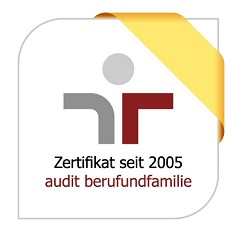Bioinformatics Data Engineer
Reference number: 2025-0175
- Heidelberg
- Full-time
- Junior Research Group "Developmental Origins of Pediatric Cancer"

“Research for a life without cancer" is our mission at the German Cancer Research Center. We investigate how cancer develops, identify cancer risk factors and look for new cancer prevention strategies. We develop new methods with which tumors can be diagnosed more precisely and cancer patients can be treated more successfully. Every contribution counts – whether in research, administration or infrastructure. This is what makes our daily work so meaningful and exciting.
The Junior Research Group "Developmental Origins of Pediatric Cancer" is seeking from September 2025 a
Our lab studies how neurodevelopmental principles underlie pediatric cancer formation. We investigate the underlying genetic programs of normal development to dissect how differentiation goes wrong during tumorigenesis. We also investigate tumor-specific mechanisms of transformation and growth.
To understand these processes, the lab integrates single-cell sequencing, whole-genome sequencing, RNA sequencing, mouse models, iPSC-derived organoids, and functional genomics approaches. The lab has strong collaboration partner in computational biology and bioinformatics, and the candidate will be jointly supervised by the “Clinical Bioinformatics - Translational Genomics” group (Division of Pediatric Neurooncology). Through this multidisciplinary approach, the lab seeks to reveal how hijacking of developmental trajectories leads to pediatric brain cancers.
Your Tasks
We are looking for a data engineer
- to generate and harmonize user-friendly, standardized data analysis pipelines for a variety of computational tasks, including, but not limited to, mutation calling, bulk and single-cell RNA-seq analysis, and ChIP-seq/Cut&Run datasets
- to perform large-scale data integration of single-cell RNA-seq datasets and generate user-friendly applications for data exploration
- to perform data analysis derived from diverse scientific topics in collaboration with PhD students and postdocs
- to train students and postdocs in basic data analysis pipeline implementation
- to explore pipelines for analyzing high-content image analysis.
Genomics approaches used in our laboratory include, but are not limited to, whole-genome sequencing, RNA-seq, ChIP-seq, Cut&Run, single-cell transcriptomics, and spatial omics. Imaging approaches include multiplexing confocal imaging and live-cell imaging.
Your Profile
- M.Sc. or Ph.D. in bioinformatics, computational biology, statistics, computer science, physics, molecular biotechnology, or a related discipline; prior bioinformatics training in transcriptomics, epigenomics, and/or genomics is required
- Strong analytical skills as well as broad experience with scripting languages (e.g. Python, R, Bash); knowledge of common bioinformatics software and access to databases are essential
- Experience in analysis of large-scale imaging analysis preferred, but not required
- Basic understanding of biology
- Proficient in English, German is not required
- Collaborative, communicative, ambitious, attention to detail, curiosity-driven, and organized, the ability to work in a multidisciplinary international team will be expected
- Professional time management
Please submit your curriculum vitae, master's and/or doctoral degree certificates, a letter of motivation, and contact information of 2 references, via the DKFZ application portal. Applications sent through email cannot be considered.
We Offer
Excellent framework conditions: state-of-the-art equipment and opportunities for international networking at the highest level
30 days of vacation per year
Flexible working hours
Remuneration according to TV-L incl. occupational pension plan and capital-forming payments
Possibility of part-time work
Family-friendly working environment
Sustainable travel to work: subsidized Germany job ticket
Unleash your full potential: targeted offers for your personal development to further develop your talents
Our Corporate Health Management Program offers a holistic approach to your well-being
Are you interested?
Then become part of the DKFZ and join us in contributing to a life without cancer!
Dr. Lena Kutscher
Phone: +49 6221/42-4622
Applications by e-mail cannot be accepted.
We are convinced that an innovative research and working environment thrives on the diversity of its employees. Therefore, we welcome applications from talented people, regardless of gender, cultural background, nationality, ethnicity, sexual identity, physical ability, religion and age. People with severe disabilities are given preference if they have the same aptitude.

